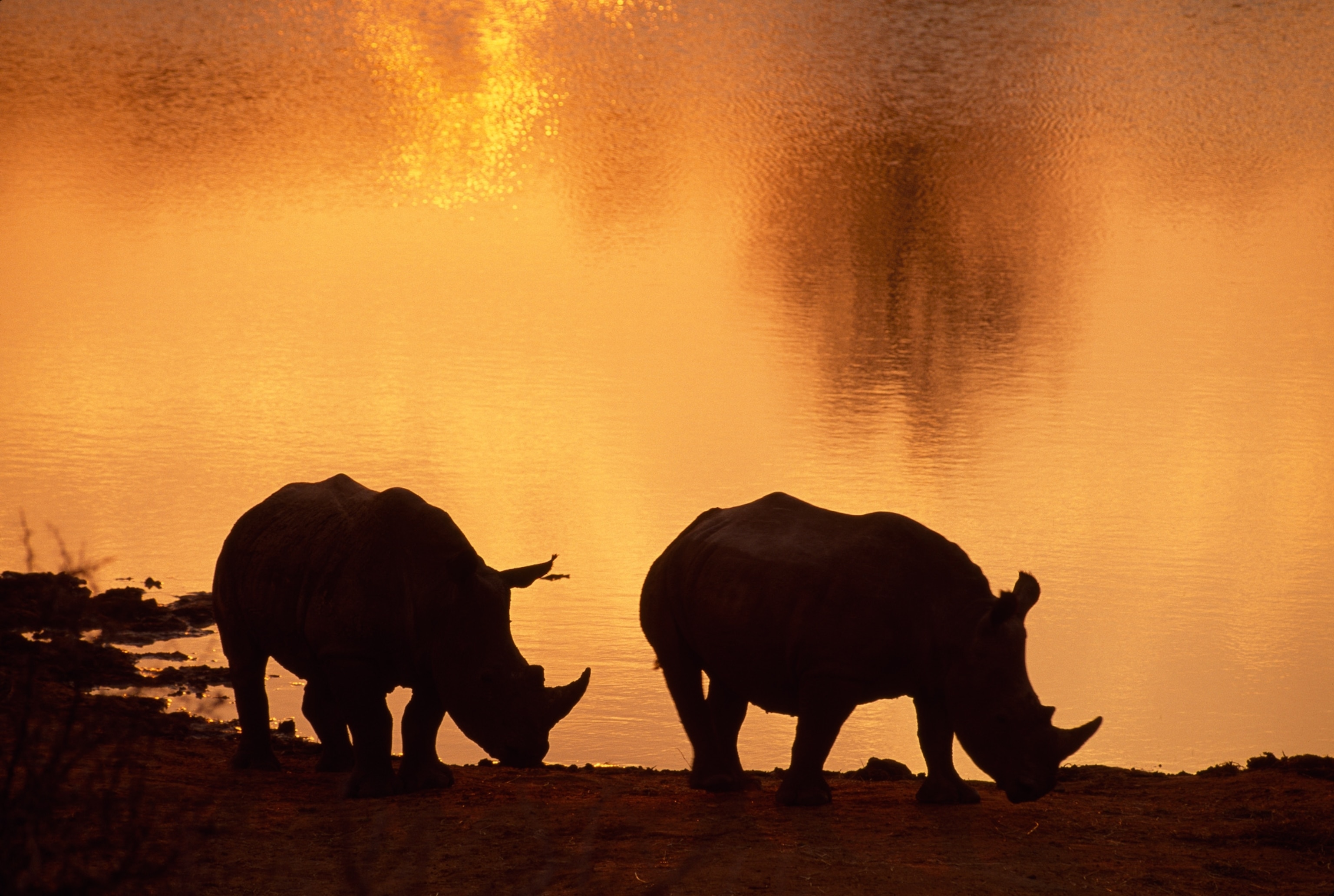
Remembering Game Warden Who Brought Rhinos Back From the Brink
A conservationist reflects on the passing of his mentor, Ian Player.
South African conservationist Ian Player, who is credited with bringing the white rhino back from the brink of extinction, died late last month, at age 87. Over a career that spanned decades, Player led successful campaigns to establish Africa's first wilderness areas. The brother of golf great Gary Player, he also helped found the World Wilderness Congress and other important conservation groups.
Although rhinos face many threats from poachers and habitat loss today, Rachel Lang wrote in Africa Geographic in 2012 that "it is because of Dr. Ian Player that there are still rhinos around for us to save."
Among Player's proteges is rhino conservationist Damien Mander, a National Geographic grantee who splits time between South Africa and Zimbabwe. A former member of the Australian special forces, Mander leads the International Anti-Poaching Foundation, which continues Player's work of protecting wildlife. (Read more about Mander's efforts to stop rhino poaching in National Geographic magazine.)
Mander talked to National Geographic about how Player saved the white rhino—and why the animal is a good stand-in for all of Mother Nature.
When did you first meet Ian Player?
In 2010 I was introduced to Ian Player by Adrian Gardiner, founder of the Shamwari Game Reserve (one of the most successful in the world at the time), and Andrew Muir, director of the Wilderness Foundation. The latter was part of the Wilderness Network, which Ian founded in 1974. It was in South Africa and I was still finding my feet in a fragmented, cutthroat conservation world.
Some of his first words to me were, "To be involved in this industry, your skin must be as thick as the pachyderms you seek to protect."
That's because the conservation industry can be a very hard space to play in. Organizations compete for limited funding, projects, and public attention. It is very fragmented, and getting people to work together can often be a foreign concept.
What did he teach you?
That only a lifelong commitment to nature is acceptable. Being in touch with nature is not some add-on option to life; it is as much a responsibility as raising a child or caring for a sick loved one. It is a responsibility that, if we are to correct the many wrongs mankind has done to this planet, we must accept.
How important was Player to saving white rhinos in particular?
Ian was instrumental in bringing the southern white rhinoceros back from near extinction in the 1950s. He initiated the team that led "Operation Rhino," which sent breeding herds around the world to safe havens, where they could regenerate. Ian was a person who could think outside of the box, and succeed.
Ian fought for an animal, which in my mind represents Mother Nature herself. [The rhino] has hardly evolved for millions of years, yet is now pushed to the brink of extinction by a few generations of greed. (Related: "Extremely Rare White Rhino Dies in Kenya—His Kind Nearly Extinct.")
What can we learn from him?
Existence is not about great financial wealth, like so many strive to obtain. It is about a good life, and Ian symbolized all that is right in living a good life. He took the harder, less traveled path and dedicated his life to something bigger than oneself.
The planet will continue to turn, as it has done for 5.3 billion years. Humans are just one of five million species on the planet. Species come and species go. Perhaps the rhino's fate will be our own? If that is not enough inspiration, then nothing is.
What is the state of African conservation now?
Ian was hauled back into the spotlight in recent years when five decades of work started to come under attack from hardened criminal networks, seeking to push the rhino to extinction. The rhino now seems to be the flagship species for conservationists fighting for nature. (See "1,000+ Rhinos Poached in 2013: Highest in Modern History.")
If this war is won and the rhino saved, then anything will seem possible. If we let this symbol of Mother Nature be taken from us, then our generation will carry a dark legacy, which in my mind will be difficult to ever recover from.
What is needed to save African wildlife?
Africa's wildlife is a global asset and it will take a global effort to save this treasure. The threat to nature is a multidimensional, complex issue with deep social implications. It is not just a matter of anti-poaching. I go to work each day knowing that what I do is not the answer. I'm only out there to stop the hemorrhaging on the front lines while we gain traction as a global community and start connecting with nature.
Ultimately, that is what it will take—the realization that it is not the planet that needs saving, only us, and to do that, we must connect with nature.
This interview has been edited and condensed.